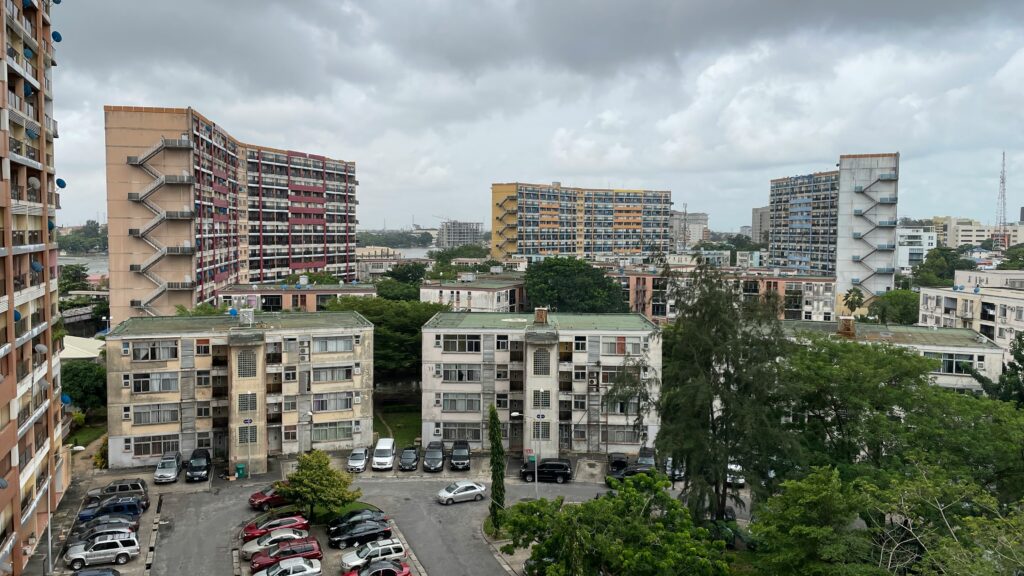Priorities for Affordable Housing in Nigeria
Increasing the supply of affordable housing in Nigeria is a government priority. Affordable housing refers to housing that can be owned by income groups categorised as below middle income. There are many barriers to the provision of affordable housing and over the years, Nigeria’s housing policy has evolved through numerous iterations to address the demand for affordable housing. Priorities for providing affordable housing and obstacles to addressing gaps in the housing market are examined in our report Priorities for Affordable Housing in Nigeria.

Nigeria’s demand for affordable housing
The demand for affordable housing has been increasing as the government’s public housing programme has been failing to reach its targets. From 2020 to 2023 the goal was to build 20,000 housing units annually. However, only 24% of this target was achieved. With the combined efforts of the public and private sector, only around 70,000 housing units are built annually. This is far short of the target of 700,000 that need to be built to address the housing gap. Deficiencies in housing supply have led to the mushrooming of informal settlements and slum areas, with over 49% of the country’s population living informally.
Barriers to affordable housing and delivery
There are a number of factors that affect the construction of affordable housing. These include: the high cost of building materials; the high costs of accessing land as well as the preparation of sites and services; the shortage of mortgage options in the market for low-income earners as well as revenue and budget limitations that have hindered the completion of projects. Other barriers include: a technical skills shortage in the construction sector (including a lack of skills and training in the use of sustainable low-cost housing technologies) the capacity of government to monitor the implementation of housing programmes; political risk resulting from a lack of continuity between government policies following changes to administrations after elections; complicated local government regulations and cumbersome bureaucratic processes; onerous land registration processes; security of tenure and poor enforcement of property rights.
Government measures to deal with the gap in affordable housing
Various measures are being implemented to address barriers to affordable housing. These include: the establishment of a National Housing Data Centre by the Federal Ministry of Housing and Urban Development (FMHUD); reforms to land registration processes in some states; the establishing of building manufacturing hubs as focal points for skills development in conjunction with the private sector ; specific measures to promote affordable housing such as reforming the Federal Housing Authority (FHA) and the Federal Mortgage Bank of Nigeria (FMBN) so that they are in alignment with an overarching housing agenda, Renewed Hope Agenda which is a blueprint for affordable housing; expanding the Urban Renewal and Slum Upgrading Programme and; streamlining administrative processes to reduce housing costs.
Additional measures recommended by experts
Besides the measures already being implemented, some additional key policies are advocated by experts to increase the affordable housing:
- Public-private partnerships where the private sector collaborates with government to develop housing schemes, to reduce costs and implement new innovations
- Site and service schemes where homeowners actively participate in the construction of their own houses at an affordable cost
- Cooperative housing schemes that entail the combining of resources into cooperatives to develop housing for members.
- Reviewing the Land Act to increase security of tenure for private property developers
- Making housing more affordable to lower income earners through reducing interest rates and creating a secondary mortgage market with loner-term repayment conditions
- The creation of a national credit database to reduce the time taken to evaluate home loan applications
- Government funded infrastructural development through the provision of basic services, water reticulation and roads
- Enforcement of town planning regulations to ensure existing housing infrastructure does not deteriorate and good quality housing is developed
- Addressing corruption in property development. This includes approval processes for property development; inflated contracts and the appointment of incompetent contractors overlooking capable ones
Use of new technologies to promote affordability and sustainable housing
The use of new technologies to reduce costs and promote sustainability are being considered and in some cases applied in housing schemes. These include:
- The use of Dry Construction techniques using recast panels. This encourages energy efficiency and provides thermal insulation
- Interlocking stabilised bricks from local materials. The use of local materials and cement-stabilised bricks is already being applied and has resulted in large cost savings
- Light Gauge Steel (LGS) entails the use of cold-formed steel frames for low-rise buildings. This reduces the need for timber, concrete and masonry and minimizes waste and emissions
- Fibre Cement Technology (FCT) is reinforced fibre cement boards for roofing and walls. This technology is resistant to fires and termites as well as rot. It also limits the use of asbestos which is a health risk
- Compressed Earth Blocks (CEB) entails the use of compact blocks from stabilised earth. This approach uses less lime and cement and is cheaper and more energy efficient than conventional blocks
Action towards affordable housing
It is clear that some steps have been taken to address the critical housing backlog of affordable housing in Nigeria. However, these measures are not sufficient on their own to reduce the housing gap. Good policies need sustained implementation between elected governments.
A holistic approach is required to address all the obstacles to affordable housing. This includes regulatory reforms; an inclusive approach such as ongoing work with the private sector to increase housing delivery and improve mortgage options that target lower income households; sustained urban renewal programmes, development of site and service schemes and the adoption of lower cost, sustainable new housing construction technologies.
